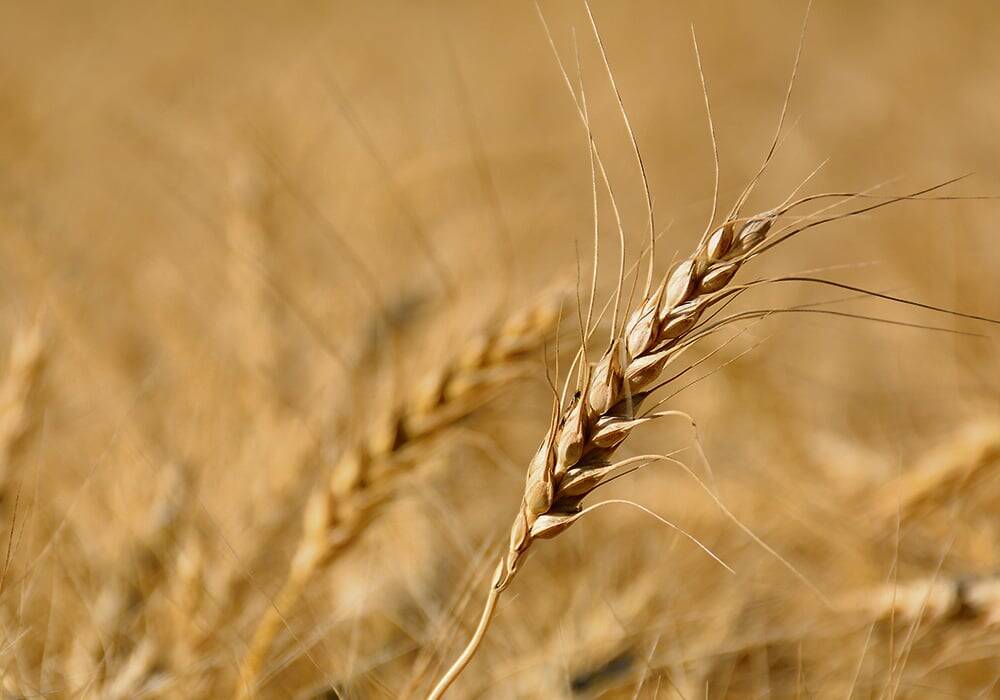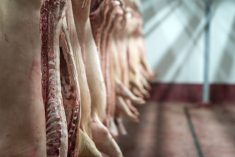Russia plans to ban meat imports from most Canadian and Mexican suppliers starting Monday (April 8) over concerns about the use of the feed additive ractopamine, a spokesman for Russia’s veterinary and phytosanitary service (VPSS) said Friday.
“More than 50 per cent of Canadian companies will be excluded from the list of suppliers,” Alexei Alekseenko said.
Russia also plans to ban about 80 per cent of Mexican meat importers from April 8, Interfax news agency reported earlier on Friday, citing the head of VPSS, Sergei Dankvert.
Canada was the largest pork supplier to Russia and accounted for 25 per cent of its imports in 2012, Sergei Yushin, head of Russia’s National Meat Association, told Reuters. About five per cent of imported beef came to Russia from Mexico last year.
Read Also

Prairie CWRS bids rise, other wheats mixed
Canada Western Red Spring (CWRS) wheat bids across the Prairie provinces saw some strength during the week ended Nov. 11, taking some direction from the United States futures. However, other wheat classes were mixed.
VPSS’s list of Canadian pork suppliers, published on its website, includes about 88 companies, while the list for Mexico includes 20 names. A VPSS spokesman could not comment on whether these lists had been updated.
Marketed in Canada by Elanco under the names Paylean and Optaflexx as a growth stimulant to make meat leaner, ractopamine is banned in some countries over concerns that residues could remain in the meat and cause health problems, despite scientific evidence indicating that it is safe.
Since December, Russia has only accepted meat from Canadian livestock that were never fed ractopamine — which was already a tiny portion of the cattle herd, said John Masswohl, director of government and international relations at the Canadian Cattlemen’s Association.
Now Russia will only accept meat from ractopamine-free animals that are processed in Canadian plants that do not also handle livestock that have been raised on the stimulant — and such plants do not exist in Canada, Masswohl said.
“You’re taking a very bad existing situation, which limits (beef) trade to almost nothing, and making it nothing.”
Cargill and JBS USA are the biggest beef packers in Canada.
“Our government is disappointed that despite our collaborative efforts, the Russian government is moving forward with this measure not rooted in science,” Canada’s Agriculture Minister Gerry Ritz said in an email statement to Reuters.
“We continue to work aggressively with Canadian industry to restore their access into the important Russian market.”
Russia is a small, but fast-growing market for Canadian beef, worth about C$15 million in 2011. Russia is the third-largest market for Canadian pork, worth about C$500 million a year, said Jacques Pomerleau, executive director of Canada Pork International, a marketing promotion agency.
Canada has about a dozen pork-processing plants that only accept ractopamine-free pigs, but there is no guarantee that Russia will include all of them on its revised supplier list, Pomerleau said.
Canada’s two biggest pork processors, Olymel and Maple Leaf Foods, have some facilities that should be eligible, Pomerleau said.
“We’re working very hard to meet Russia’s expectations,” said Olymel spokesman Richard Vigneault. “It’s a very important market for us.”
Spokespersons for Cargill and JBS could not be immediately reached, and Maple Leaf declined comment.
Spokesmen for Mexico’s Economy and Agriculture ministries said they were still reviewing the situation.
A Feb. 11 Russian ban on U.S. beef, pork and turkey because of the feed additive remains in place. Russia barred turkey imports from the United States despite a U.S. poultry trade group’s finding that U.S. turkey companies that ship to Russia do not use ractopamine.
More than US$600 million worth of U.S. beef, pork and turkey is exported to Russia annually. The ban came amid trade tensions between the two countries.
Russia will cover its meat demand with supplies from South America, mainly Brazil, Alekseenko said.
Russia imported 1.32 million tonnes of red meat, excluding offal, worth US$5.12 billion from countries outside the Commonwealth of Independent States in 2012, official customs data showed. — Reuters













